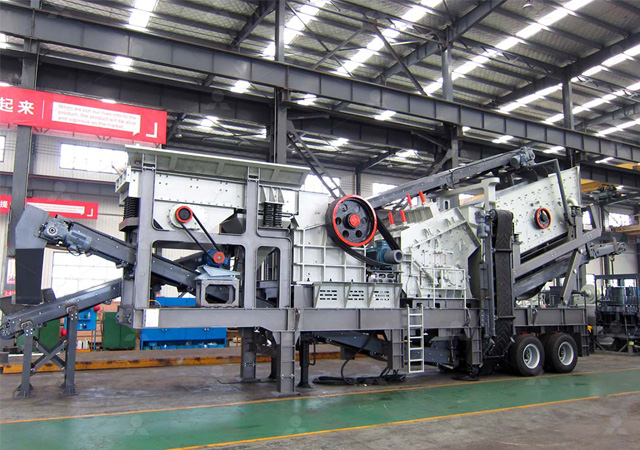Portable rock crushers have become an essential piece of equipment for various industries, particularly in mining, construction, and recycling. Their mobility and versatility offer numerous benefits, making them a popular choice for companies worldwide. This article delves into the key aspects of portable rock crushers, their advantages, and considerations for exporting them.

Key Features of Portable Rock Crushers
- Mobility: Portable rock crushers are designed to be easily transported to different locations. They can be mounted on trailers, tracks, or wheels, enabling them to be moved quickly and easily between job sites. This feature significantly reduces transportation costs and time.
- Versatility: These crushers can handle a variety of materials, including granite, basalt, limestone, and even recycled concrete. Different models come with varying capacities and capabilities, such as jaw crushers, cone crushers, impact crushers, and hammer crushers, allowing them to be used for a wide range of crushing applications.
- Efficiency: Advanced technology in portable rock crushers includes hydraulic systems, automation, and sophisticated control panels that enhance operational efficiency. Features like adjustable settings, quick setup times, and ease of maintenance contribute to their efficiency.
- Durability: Built to withstand harsh conditions, portable rock crushers are constructed with robust materials. High-quality components ensure long-term reliability and minimal downtime, which is crucial for continuous operations in demanding environments.
Advantages of Portable Rock Crushers
- Cost-Effectiveness: By eliminating the need for fixed crushing plants, portable rock crushers reduce the initial investment and operational costs. They allow for on-site crushing, reducing material transportation expenses and the need for secondary equipment.
- Flexibility in Operations: Their ability to be deployed in remote or hard-to-reach locations makes them ideal for mining and construction projects where stationary crushers would be impractical. This flexibility enables quick adaptation to project requirements.
- Safety: Modern portable rock crushers come equipped with safety features such as emergency stops, guarding, and user-friendly controls. These features help minimize the risk of accidents and enhance overall safety on the job site.
Considerations for Exporting Portable Rock Crushers
- Regulatory Compliance: Different countries have varying regulations regarding machinery imports. Ensuring that the portable rock crushers meet the destination country’s safety, emissions, and operational standards is crucial. Certification and compliance with international standards like ISO can facilitate smoother export processes.
- Logistics: Exporting heavy machinery involves complex logistics. It is important to consider the transportation method (sea, air, or land), packaging, and handling requirements. Working with experienced logistics providers can help navigate these challenges effectively.
- Market Demand: Understanding the market demand in the target country is essential. Researching local industries, potential competitors, and economic conditions can help in making informed decisions about which models to export and the expected sales volume.
- After-Sales Support: Providing comprehensive after-sales support, including spare parts availability, maintenance services, and technical assistance, is critical for customer satisfaction and brand reputation. Establishing a local presence or partnering with local service providers can enhance support capabilities.
- Pricing Strategy: Competitive pricing is important to succeed in international markets. Consider factors such as local purchasing power, competitor pricing, and additional costs like tariffs, duties, and taxes when setting prices for export.
Portable rock crushers offer numerous advantages in terms of mobility, versatility, efficiency, and cost-effectiveness, making them valuable assets for various industries. Exporting these machines requires careful consideration of regulatory compliance, logistics, market demand, after-sales support, and pricing strategy. With the right approach, companies can successfully expand their market reach and capitalize on the growing demand for portable rock crushers worldwide.
